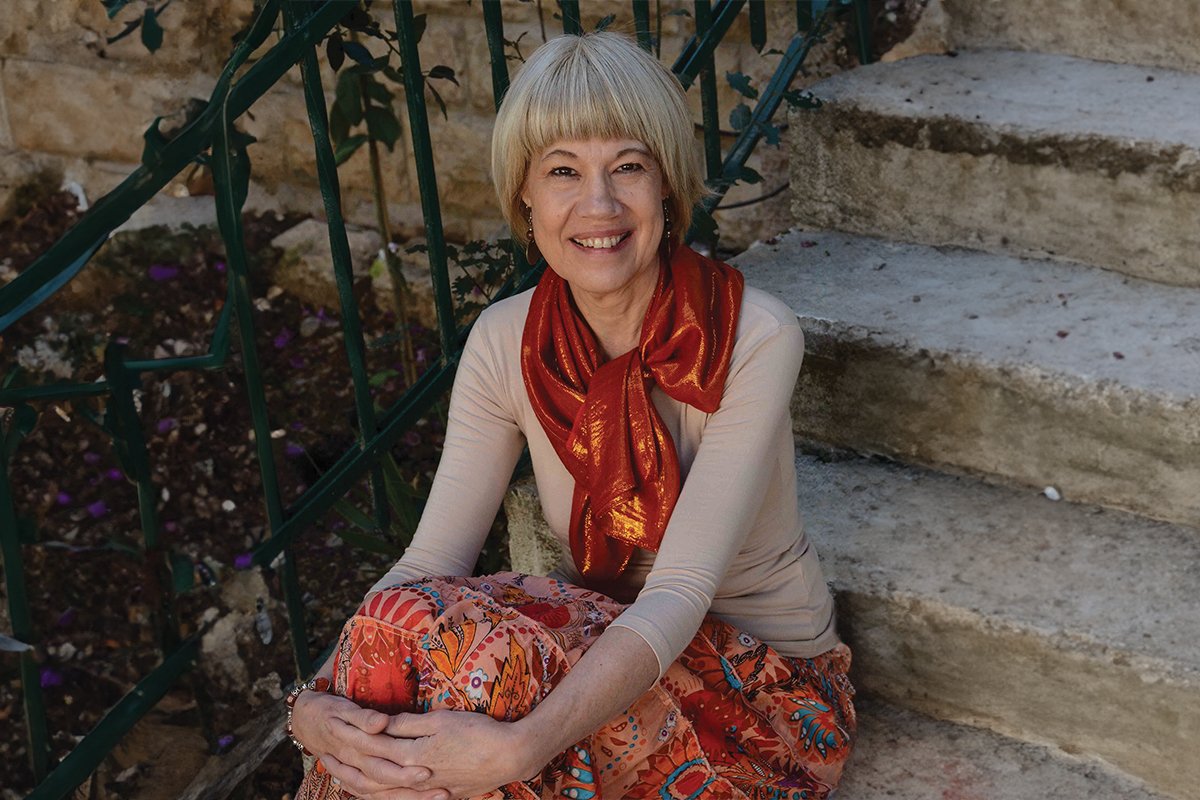Photo: Sara Arnold, author and educator, dedicated to bridging cultures and celebrating diversity through storytelling and her groundbreaking book, The Big Buna Bash.
Bridging Cultures With Love And Authenticity
Sara Arnold discusses her book, The Big Buna Bash, her passion for Ethiopian culture, and her mission to empower children by celebrating diversity, cultural pride, and understanding through storytelling.
S ara Arnold, an author whose words resonate with the power of diversity and unity, is a name we are proud to feature in this issue of Reader’s House magazine. Through her remarkable book, The Big Buna Bash, Arnold has given children across the globe a tale that celebrates cultural differences, identity, and belonging. Her work invites readers to consider the beauty of what sets us apart while embracing what brings us together. As an advocate for inclusivity and understanding, Sara has delved deep into Ethiopian culture, presenting it with authenticity and heartfelt admiration, not only through her writing but also through her tireless philanthropic efforts.
With over 40 years of dedication as an educator in Israel and her inspiring ventures such as “ReadingMatters Ethiopia” and the “Taytu Project,” Sara Arnold proves that literature is not just a tool for storytelling but a bridge to connect hearts and minds. The Big Buna Bash, available in English, Hebrew, and Amharic, has earned a place as a gem in the world of children’s literature, teaching young readers to embrace their uniqueness and cherish the traditions that shape their families.
Arnold’s understanding of the Ethiopian buna ceremony, its rich symbolism, and its ability to bring people together is woven beautifully through her book. By drawing from her personal connection with Ethiopian culture and her experiences of witnessing the transformative power of heritage and family traditions, she has gifted the literary world a story that is both profound and relatable. Her wisdom on creating empathy, championing diversity, and writing inclusion into every page makes her an inspiration to writers everywhere.
This interview delves into Sara Arnold’s journey of cultural storytelling, her hopes for the readers of The Big Buna Bash, and her commitment to empowering children through representation. Join us as we celebrate the author behind this captivating story and the mission she champions to open hearts and minds with every word she writes.
Sara Arnold is an inspiring author who beautifully champions diversity, inclusion, and cultural pride through heartfelt and authentic storytelling.
What inspired you to write a story about a character from an Ethiopian background?
That’s an easy one! My relationship with Ethiopian culture began over twenty years ago when I met an Ethiopian/Israeli family in Jerusalem. Soon I became acquainted with their large extended family and over time became an adopted “aunt”. The rest is history.
How do you think children can benefit from reading about different cultures and traditions?
As parents and teachers, we need to open up new worlds for children to discover. Children notice differences, so it’s important to show them that it’s fun to learn about other cultures, and it feels good to embrace and value the things that make each person different.
“Children notice differences, so it’s important to show them that it’s fun to learn about other cultures.” -Sara Arnold
Can you tell us a bit about the significance of buna in Ethiopian culture and why you chose to feature it in your story?
The buna ceremony is an integral part of Ethiopian culture and a powerful symbol of Ethiopian identity. Buna brings people together to relax, connect and share.
I chose to feature it in my story as a symbol of respect and friendship. In my story, Almaz chooses buna to connect with her classmates and in the process, she better connects with herself!
How do you hope your book will help children who are struggling to fit in because of their cultural differences?
“The Big Buna Bash” is a book that says, “Don’t be afraid to be who you are”. Prince Joel David Haile Selassie said it best when he wrote the endorsement that appears on the back cover, “What makes you different can be difficult sometimes, but it can also make you unique and interesting to others.”
“Differences can bring you together.” – Sara Arnold
What role do you think family traditions play in shaping a child’s sense of identity and belonging?
As a teacher in a diverse public school, I have seen the impact that cultural pride has on children’s self-esteem and the role that cultural family support plays to empower them to be who they are.
How did you go about researching and incorporating authentic Ethiopian cultural practices into your story?
Because I was already quite familiar with Ethiopian culture, it wasn’t difficult to write the story in an authentic way. When I had a question, I would ask my Ethiopian family for advice. What was challenging was keeping the illustrations authentic. I drove my illustrator crazy!
What message do you hope readers will take away from Almaz’s experiences in the book?
I want them to know that differences can bring you together.
I hope readers will be encouraged to break down barriers and to empower one another through their differences. I tried to give kids the courage to share and celebrate their backrounds because that is what makes them unique.
What advice would you give to fellow authors who are looking to write stories that promote diversity and inclusivity for young readers?
Diverse books are important for all children to learn from, but especially for kids from diverse backgrounds. Kids need to see themselves in books – to read about people who feel and look like them!
I would advise authors to make their characters vulnerable in order to create empathy in the readers. And never forget that their voice is unique.


